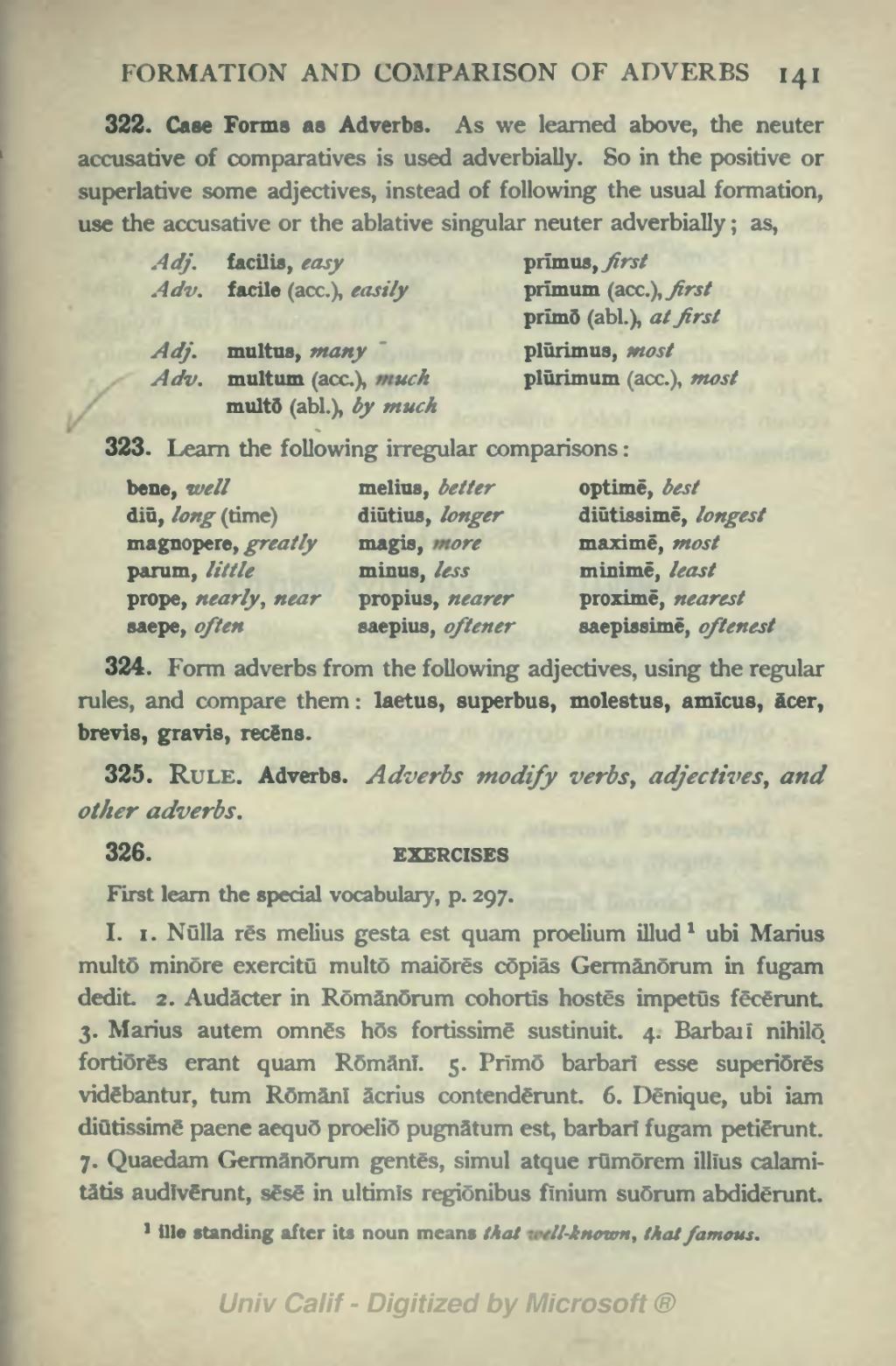FORMATION AND COMPARISON OF ADVERBS 141
322. Case Forms as Adverbs. As we learned above, the neuter accusative of comparatives is used adverbially. So in the positive or superlative some adjectives, instead of following the usual formation, use the accusative or the ablative singular neuter adverbially; as,
|
Adj. |
facilis, easy |
prīmus, first |
|
Adj. |
multus, many |
plūrimus, most |
323. Learn the following irregular comparisons:
| bene, well | melius, better | optimē, best |
| diū, long (time) | diūtius, longer | diūtissimē, longest |
| magnopere, greatly | magis, more | maximē, most |
| parum, little | minus, less | minimē, least |
| prope, nearly, near | propius, nearer | proximē, nearest |
| saepe, often | saepius, oftener | saepissimē, oftenest |
324. Form adverbs from the following adjectives, using the regular rules, and compare them: laetus, superbus, molestus, amīcus, ācer, brevis, gravis, recēns.
325. Rule. Adverbs. Adverbs modify verbs, adjectives, and other adverbs.
326.
EXERCISES
First learn the special vocabulary, p. 297.
I.
- Nūlla rēs melius gesta est quam proelium illud[1] ubi Marius multō minōre exercitū multō maiōrēs cōpiās Germānōrum in fugam dedit.
- Audācter in Rōmānōrum cohortīs hostēs impetūs fēcērunt # Marius autem omnēs hōs fortissimē sustinuit.
- Barbarī nihilō fortiōrēs erant quam Rōmānī.
- Prīmō barbarī esse superiōrēs vidēbantur, tum Rōmānī ācrius contendērunt.
- Dēnique, ubi iam diūtissimē paene aequō proeliō pugnātum est, barbarī fugam petiērunt.
- Quaedam Germānōrum gentēs, simul atque rūmōrem illīus calamitātis audīvērunt, sēsē in ultimīs regiōnibus fīnium suōrum abdidērunt.
- ↑ ille standing after its noun means that well-known, that famous.
